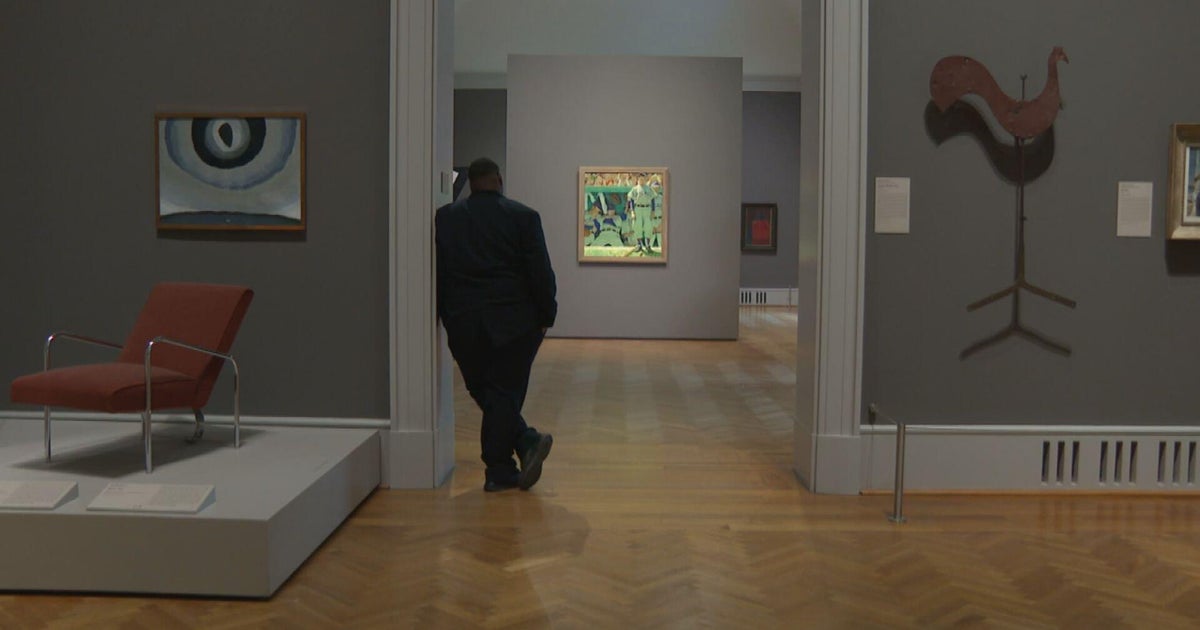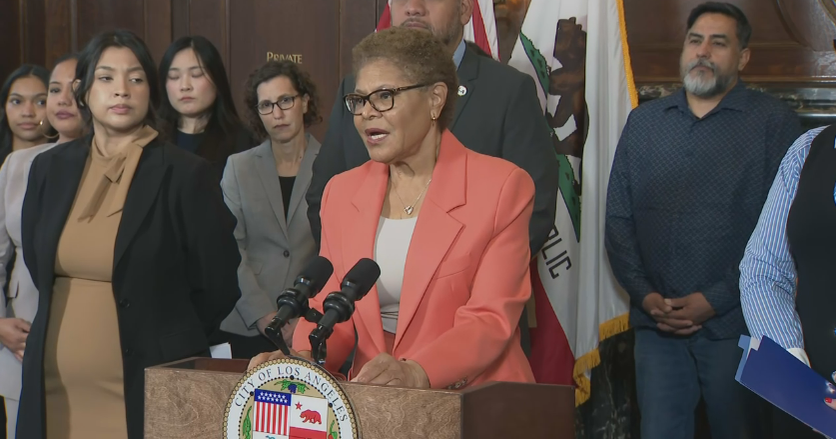Egyptian Americans Here Elated As Mubarak Steps Aside
UPDATED 02/11/11 8:45 p.m.
CHICAGO (WBBM/CBS) -- Egyptian Americans in Chicago were elated to see the potential birth of a new nation, with the announced resignation Friday of President Hosni Mubarak.
Yusuf Fahmy saw the raw emotion on his father's face and at first didn't know why his dad was crying, CBS 2's Mike Puccinelli reports.
"I thought it was tears of sadness. But they were actually tears of joy, because today is a new day – for Egypt, for everyone around the world," Fahmy said at a news conference.
His father, Alla Fahmy, couldn't believe what he was witnessing in his homeland. He'd been waiting for that moment his entire life. He said he cried in part for the sacrifices some people made with their lives in his native country.
Only after receiving calls from relatives who were in Cairo did the elder Fahmy "realize it's reality, it's true," he told reporters.
Zaher Sahloul of the Council of Islamic Organizations of Greater Chicago says Egyptians have been yearning to bask in the air of freedom for generations. And now they finally can.
"The 84 million Egyptians, for the first time, they are breathing the same air of freedom that we are breathing," Sahloul said.
A leader in Chicago's Jewish community says he feels for the Egyptian people for all they have endured. But Lonnie Nasatir, regional director of the Anti Defamation League, told CBS2's Mike Parker, he also worries about the future. He believes there is a danger that the revolution might be hijacked by Islamic radicals who will try to turn the army's guns on Israel.
That theory is rejected by Amina Sherif, a spokeswoman for the Chicago office of the Council on American Islamic Relations. Although Egypt's Muslim Brotherhood Party joined in the revolt in the streets, she says Egypt will always be a moderate, secular nation.
"The Muslim Brotherhood is a small party," she says. "It represents maybe 5 percent of the people in Egypt. It will never be a powerful force."
Nasatir had one good thing to say for ousted Egyptian President Mubarak: that he kept the Israeli- Egyptian peace treaty in place.
"As a result of that, there was stability in the southern part of that region," he said.
Mubarak, Egypt's autocratic president for 30 years, resigned on Friday following more than two weeks of protests demanding he step aside. Northwestern University Professor Kristen Stilt says next come uncharted waters.
LISTEN: Newsradio 780's John Cody Reports
Podcast
The Egyptian constitution calls for new elections within 60 days. That's impossible because the laws are rigged so only someone else from Mubarak's NDP party can get elected. So the laws must be changed, and it's hard to tell exactly how that will happen.
She does say governing Egypt is a doable job but it will take time.
"For 30 plus years, there really hasn't been attention paid to large sectors of society--education, health care, economic development," Stilt said. "All of this has never been done or has languished."
Professor Stilt says she'll be watching to see who'll be brought to the table, who'll draft the constitution and see what steps are taken to bring in diverse groups to shape Egypt's future.
The power elite in Egypt has ruled for six decades, backed by a constitution it wrote, state media it controls and millions of Egyptians who depend on its patronage.







